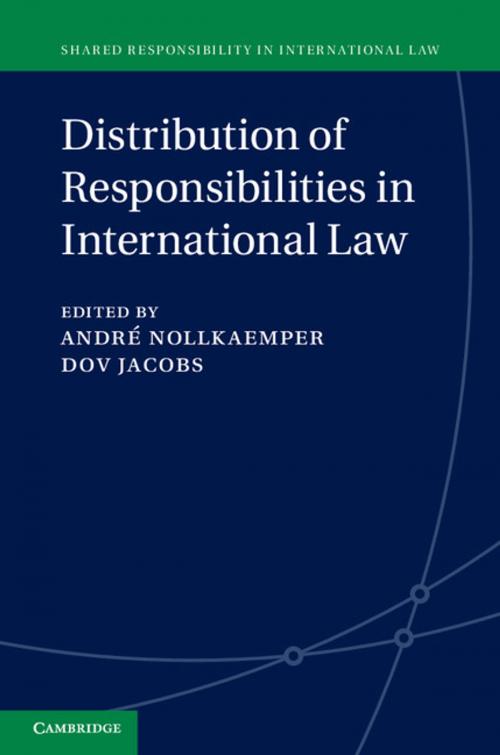Distribution of Responsibilities in International Law
Nonfiction, Reference & Language, Law, International, Social & Cultural Studies, Political Science| Author: | Jessica N. M. Schechinger | ISBN: | 9781316404003 |
| Publisher: | Cambridge University Press | Publication: | September 18, 2015 |
| Imprint: | Cambridge University Press | Language: | English |
| Author: | Jessica N. M. Schechinger |
| ISBN: | 9781316404003 |
| Publisher: | Cambridge University Press |
| Publication: | September 18, 2015 |
| Imprint: | Cambridge University Press |
| Language: | English |
This is the second book in the series Shared Responsibility in International Law, which examines the problem of distribution of responsibilities among multiple states and other actors. In its work on the responsibility of states and international organisations, the International Law Commission recognised that attribution of acts to one actor does not exclude possible attribution of the same act to another state or organisation. However, it provided limited guidance for the often complex question of how responsibility is to be distributed among wrongdoing actors. This study fills that gap by shedding light on principles of distribution from extra-legal perspectives. Drawing on disciplines such as political theory, moral philosophy, and economics, this volume enquires into the bases and justifications for apportionment of responsibilities that can support a critique of current international law, offers insight into the justification of alternative interpretations, and provides inspiration for reform and further development of international law.
This is the second book in the series Shared Responsibility in International Law, which examines the problem of distribution of responsibilities among multiple states and other actors. In its work on the responsibility of states and international organisations, the International Law Commission recognised that attribution of acts to one actor does not exclude possible attribution of the same act to another state or organisation. However, it provided limited guidance for the often complex question of how responsibility is to be distributed among wrongdoing actors. This study fills that gap by shedding light on principles of distribution from extra-legal perspectives. Drawing on disciplines such as political theory, moral philosophy, and economics, this volume enquires into the bases and justifications for apportionment of responsibilities that can support a critique of current international law, offers insight into the justification of alternative interpretations, and provides inspiration for reform and further development of international law.















